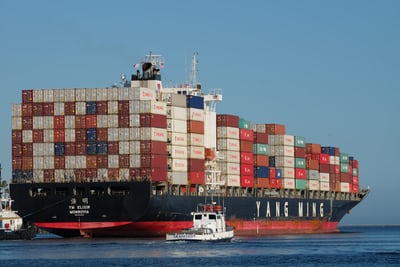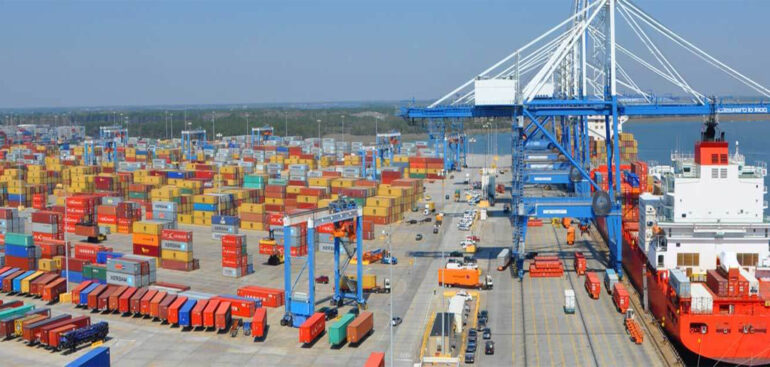From 2020 and early 2021 all the freight forwarding companies are experiencing slow growth due to a rise in ocean freight shipping costs, And if you contacted any one they always blame it on Covid 19. And in this article let us go bit deep into the cause try to find the reasons that is really effecting the cost of sea freight. As COVID-19 one of the reason that has been affecting the shipping costs, but not in the way that you might think, right yes, people are going ahead and getting sick.
People are not working and it’s causing a strain at every port in the entire world. But this might be going on and these high ocean freight shipping costs can be here to stay for a very long time if we do not fix things. Right? So again, let’s go ahead and dive into the very first article here and it’s going to be something from CNBC that basically reports that an aggressive fight over containers is causing these ocean freight shipping costs to skyrocket by up to 300% right? And if you go ahead and look at the very first bullet points it says ocean freight shipping costs have skyrocketed as desperate companies wait weeks for containers and pay a premium rates to go ahead and get them. So the first thing we go ahead explain is E Commerce has basically boomed in 2020, basically the number of people shopping online where we were supposed to be in 2025 is now here in 2021 and all the companyes wanted their product to push into the marked.
That’s basically increasing the demand for a lot of our products. The ports are not ready for this influx of inventory we are receiving so that’s one point. The other point is basically we have companies, that’s basically calling this a global transport crisis and estimates that 850 of its 8500 products are being affected by the shipping delay. Few huge company and for them to have 10% of their inventory being affected by this. The biggest thing that’s going on here and we’re going to go ahead and go through it in this article is basically, that states in December of 2020, spot fright shipping rates were up 264% higher from Asia to North Europe routes compared to a year ago.
And basically for the same route from Asia all the way. Let’s go ahead and just highlight here for those rats in Asia to the west Coast of the United States, the ocean freight shipping rates are up 145% year over year. Which is insane, right? And compared to last March, low ocean freight shipping price raised from China to the United States and Europe have had searched 300% And it says here, and everyone said that spot rates have raised up to $6,000 per container compared with the usual price of $1,200. And I’ve experienced this firsthand right? Because the business is growing, as ordering more inventory and will always attributed the actual shipping costs being higher based on because I’m getting more value. And yes, that makes sense. But now as going ahead and getting 40 ft. containers and paying roughly 8000 to $9000 for that container to get from china to the Los Angeles.
Poor people are telling we are paying way too much, but the reason why this is happening is because of these Chinese trade war, and let’s go ahead and look at it here. So what’s happening is we already have a trade surplus in china and it has turned dramatically more severe. And in reality there are three containers going out for every container that is coming in. So let me simplify this just a little bit as best as I can. Basically. We have three containers full containers of Chinese goods and products in china that are getting shipped into the United States. That’s getting bought by American citizens, but we only have one full container of United States products and goods that are getting shifted for the United States and into china for the Chinese citizens to go ahead and purchase.
And this is creating a chain reaction are actual USD. The dollar is getting weaker and we can go ahead and see this by manufacturer going ahead and charging more in china as well for products because of this U. S. Dollar and if this trend continues that means we’re going to be paying more for products. And we have one or two options trying to source these products cheaper or go ahead and start charging more for our products themselves and basically makes everything more expensive for United States citizens to go ahead and purchase goods and products. This is attributed a lot based on the fact that throughout COVID-19 the United States has struggled to go ahead and keep their cases down, right but China has done a great job and their GDP and their economy is basically back to normal, if not better than when the pandemic First started because when any flare up goes in China for COVID-19, they shut everything down.
There might be some lockdowns now in North China, but they basically have it under control. And as opposed to the United States, we have so many shutdowns that’s really struggling for the actual economy to get back to normal. Again, the stock market is not the true economy itself and we’re basically seeing this by the US. dollar going ahead and falling right so this could potentially drag on and have huge implications to not only how much we spent on products themselves but basically how much American citizens go ahead and purchase goods and products and it’s not just us it’s going to be everything, not just basically my shoe cleaner or basically your product that you guys go ahead selling on amazon basically be across the board from iPhone to Ikea furniture from anything. You can go ahead and think that we get from china, we can assume that United States citizens will pay more for this if things do not change right?
So again I like to go ahead. Maybe I’m missing something here, maybe there’s more things to go as far as why ocean freight shipping is costing so dam expensive nowadays. But I would love to hear your feedback. Have you heard anything that I’ve missed in this article itself? I would love to hear in the comments below everything I say in this article is my opinion, but I do think that this has some long term ramifications if we do not have china by more of our actual goods and services. But again, my opinion.


